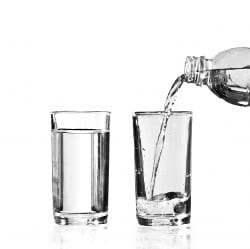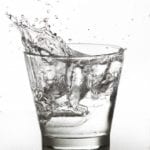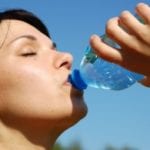How is dehydration defined?
Most people think of dehydration in the same way they think of thirst. While it’s true that drinking too little water can make you thirsty; it can also cause lightheadedness, muscle cramping, dizziness and fatigue. Left unchecked, dehydration can lead to heat stroke, heat exhaustion, seizures, and even death.
How does exercise affect hydration?
We all know that exercise turns up the temperature of your body, which is why we perspire; but what if we run low on water to produce sweat? Then the body is unable to properly cool itself. When we exercise in extreme heat without enough fluid intake, this can happen pretty fast. Aside from sweat production, fluids help with blood flow and muscle contraction, two things of the main benefits of physical activity. Remember, you may not always feel thirsty during vigorous exercise, but that doesn’t mean you don’t need water. Even activities such as swimming require proper hydration.
How much water should you drink?
The answer to this question has become somewhat controversial lately, as various health professionals differ in their opinions. However, the standard remains the same among the most respected healthcare institutions. They say we should all drink at least 6 to 8 glasses of water each day, and if you are working out you may need more.
To be certain you are getting enough hydration, remember to drink plenty of fluids before, during and after a workout. Some personal trainers recommend drinking a few glasses of water several hours before exercising to give your body enough time to absorb it, but even if you don’t do that drinking water during exercise is crucial. If you will be working out for longer than an hour, you might want to drink a sports drink that replaces electrolytes too.
How is dehydration detected?
There are a few ways to be aware of dehydration before it becomes dangerous. One way is to check the color of your urine. A darker color probably means you are not getting enough fluid, whereas a pale yellow or clear color means you are properly hydrated. Another way to figure out if your fluid levels are high enough is to weigh yourself before and after a workout.If you find that your weight decreases after the workout, chances are you need to increase your fluid intake.
Who is at risk for dehydration?
According to the Mayo Clinic, the following groups are more likely to be vulnerable to dehydration.
Infants and children – Because of their relatively low body weight and high turnover of fluids, infants and children are especially vulnerable to dehydration.
Older adults – As people age they become more susceptible to dehydration because the body loses some of its ability to conserve water. The feeling of thirst becomes less acute, while at the same time the body is less capable of responding to temperature changes. When older adults live alone they may tend to eat and drink less because there is no one around to remind them. These problems are compounded by chronic illnesses, hormonal changes and a high volume of prescription medications,
People with chronic illnesses – People who suffer from diabetes have a higher risk for dehydration, but other chronic illnesses are just as dangerous. These include adrenal gland disorders, alcoholism and kidney disease. Even a fever will increase the risk for dehydration.
People who live in high altitudes – Living, working and exercising at higher altitudes can cause a number of health problems. One of these is dehydration, which can happen when the body tries to adjust to high elevations through increased urination and more rapid breathing.
People who work or exercise in hot or humid weather – When it’s hot and humid, the risk of dehydration and heat exhaustion increases. When the air is humid, sweat cannot evaporate as quickly and the cooling process is less efficient. This can lead to an increased body temperature and the need for more fluids.
Other benefits of hydration
Just as exercise a critical component for maintaining good health, water is a necessary fuel for your body. Aside from keeping you hydrated during exercise, water has other benefits. One major benefit is how it helps you maintain a healthy weight, but it also aids in digestion, and contributes to a clear complexion. So grab your water bottle and drink to your health!
Photo Courtesy of FreeDigitalPhotos.net





